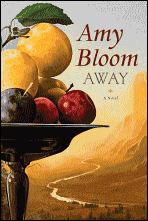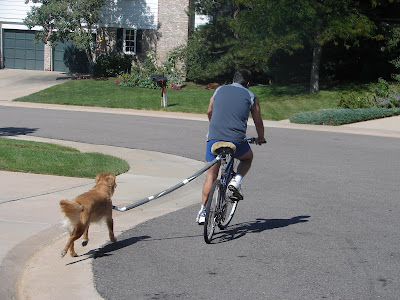Liz Fenwick tagged me for this meme on books and it presented me with some revelations about my recent habits. I swear, the meme is here somewhere, so just skip to the end of this blathering if you want to get to it faster.
I consider reading to be just as important to my writing as the actual writing and so the books I read tend to be selected for specific reasons. I can’t remember the last time I picked up a book to read, just because I thought it would be fun or entertaining. This surprised me. The good side of this coin is that because I’ve been reading books to gain insight into how they were written, it makes me realize that I have begun to look at writing (and the associated reading) in the same way I view learning a profession.
The other side of the coin is that reading has always been a happy diversion for me and I’ve been depriving myself of that pure escapism. Those books I picked up to read for the pure pleasure and entertainment of it all keep slipping to the bottom of the pile.
I can track this back to the weeklong retreat I attended with Lighthouse Writers Workshop in July. I knew some of the instructors were published authors and I wanted to read their books before I went. It would be just plain rude not to, right? There were also four books that would be discussed (the discussions were optional, but I’m an overachiever, so that was a no-brainer – of course I was going to read them all). I managed to slip in Virginia Woolf’s To the Lighthouse as a challenge to myself and then I read Tobias Wolff’s Old School because he was coming to
 In October, I’ll be attending a class called Experimental Structures in the Novel. We’ll meet every other Thursday for eight weeks and we’ll discuss four novels that take unique approaches to story structure, so I’ve got quite a bit of my future reading mapped out. We’ll read The Good Soldier by Ford Madox Ford, To the Lighthouse by Virginia Woolf (ha, finally ahead of the
In October, I’ll be attending a class called Experimental Structures in the Novel. We’ll meet every other Thursday for eight weeks and we’ll discuss four novels that take unique approaches to story structure, so I’ve got quite a bit of my future reading mapped out. We’ll read The Good Soldier by Ford Madox Ford, To the Lighthouse by Virginia Woolf (ha, finally ahead of the curve), If on a Winter’s Night a Traveler by Italo Calvino and The Rings of Saturn by W.G. Sebald. How could I pass up the opportunity to try out books like this with some actual adult supervision?
curve), If on a Winter’s Night a Traveler by Italo Calvino and The Rings of Saturn by W.G. Sebald. How could I pass up the opportunity to try out books like this with some actual adult supervision?
Now since my Lighthouse Writers Workshop instructor for the course is also a published novelist and short story writer, and he's had a story published in The New Yorker (yes) I’ve just started his book, Articles of War, which was listed by Esquire Magazine as one of the best books of the year. Nick Arvin’s book has also been named 2007’s One Book, One Denver selection! – More on that next week.
Prior to any of this, I signed up for the Writers Revealed Virtual Book Club and Away, by Amy Bloom is sitting quietly, waiting for me to pick it up so that I can participate in the discussion with the author on October 28th.
 In the meantime, I have books by other bloggers sitting in piles unread -- including at least one blogger who I've tagged today! The exception of course is that I dropped everything to read the UK edition of Therese Fowler’s Souvenir that Larramie was so wonderful to send me in July – how could I not?! Everything else I have in that pile (and I
In the meantime, I have books by other bloggers sitting in piles unread -- including at least one blogger who I've tagged today! The exception of course is that I dropped everything to read the UK edition of Therese Fowler’s Souvenir that Larramie was so wonderful to send me in July – how could I not?! Everything else I have in that pile (and I promise you there are about a dozen) I really do want to read and I have not had time to open. I’m also a big fan of Alexander McCall Smith’s No. 1 Ladies Detective Agency series and the latest release has been collecting dust for weeks.
promise you there are about a dozen) I really do want to read and I have not had time to open. I’m also a big fan of Alexander McCall Smith’s No. 1 Ladies Detective Agency series and the latest release has been collecting dust for weeks.
I'm not even going to mention all of the books on writing and craft I've bought and read over the last year or so -- see my list of books I've read this year on the sidebar to get an idea about those. Yikes.
Is this a bad thing?
Is all of my “serious” reading making me a dull person? Seriously, I am NOT a great big poser trying to read all these smarty-mcsmart-smart books just to look smart. I do have a big sense of having missed out on taking literature classes in college because – oh yeah, I didn’t exactly go to college, so I feel like I’m making up for lost time.
Am I depriving myself of some good old-fashioned fun, or am I doing what I need to?
OK – on to the meme:
Total number of books?
I’m not sure if this means the total number I have now or the total number I’ve had in my life – hmm. I feel like I’m constantly purging the collection because books take over the houses where I live all the time. Looks like the average number of books on each bookshelf is 30 X 20 shelves = 600, oh my God, plus the piles of unshelved books on top of tables, on top of shelved books, stuck in cabinets, in boxes in the garage – Is there a 12-step program or rehab facility for this kind of obsession!? Do I need an intervention?
Last Book read?
I’m happy to report that earlier tonight I finished The Children’s Hospital, by Chris Adrian. I hope to post a review at The Book Book within the next few days.
Last Book Bought?
That could be the last one delivered or the last one ordered – yes, I buy way too many one-click selections from Amazon! I bought three at once (listed above) for the class on experimental fiction. Yesterday, Amazon delivered Look Me in the Eye, by John Elder Robison. It had been on pre-order with Amazon for quite a while.
Five meaningful Books?
So hard to say and I know I am forgetting so many books that touched me, but here goes. Books that really made me want to write and that were meaningful to me at different times in my life include: A Fine and Private Place by Peter S. Beagle, The Other by Thomas Tryon, The Dogs of March by Ernest Hebert, Sophie’s Choice by William Styron, and The Vampire Lestat by Anne Rice.
Five People to Tag – Hmmmm – How About:
Kristen at From Here to There and Back
Carleen at The Pajama Gardener
Now I figure I'm one of the few people I've run across on these blogs who's attempting a "Back to School" type of experience -- just like Rodney Dangerfield, only please God, I hope I don't really look like Rodney Dangerfield!
How often do you pick up a book in order to study it, rather than purely for the enjoyment of reading it?



















